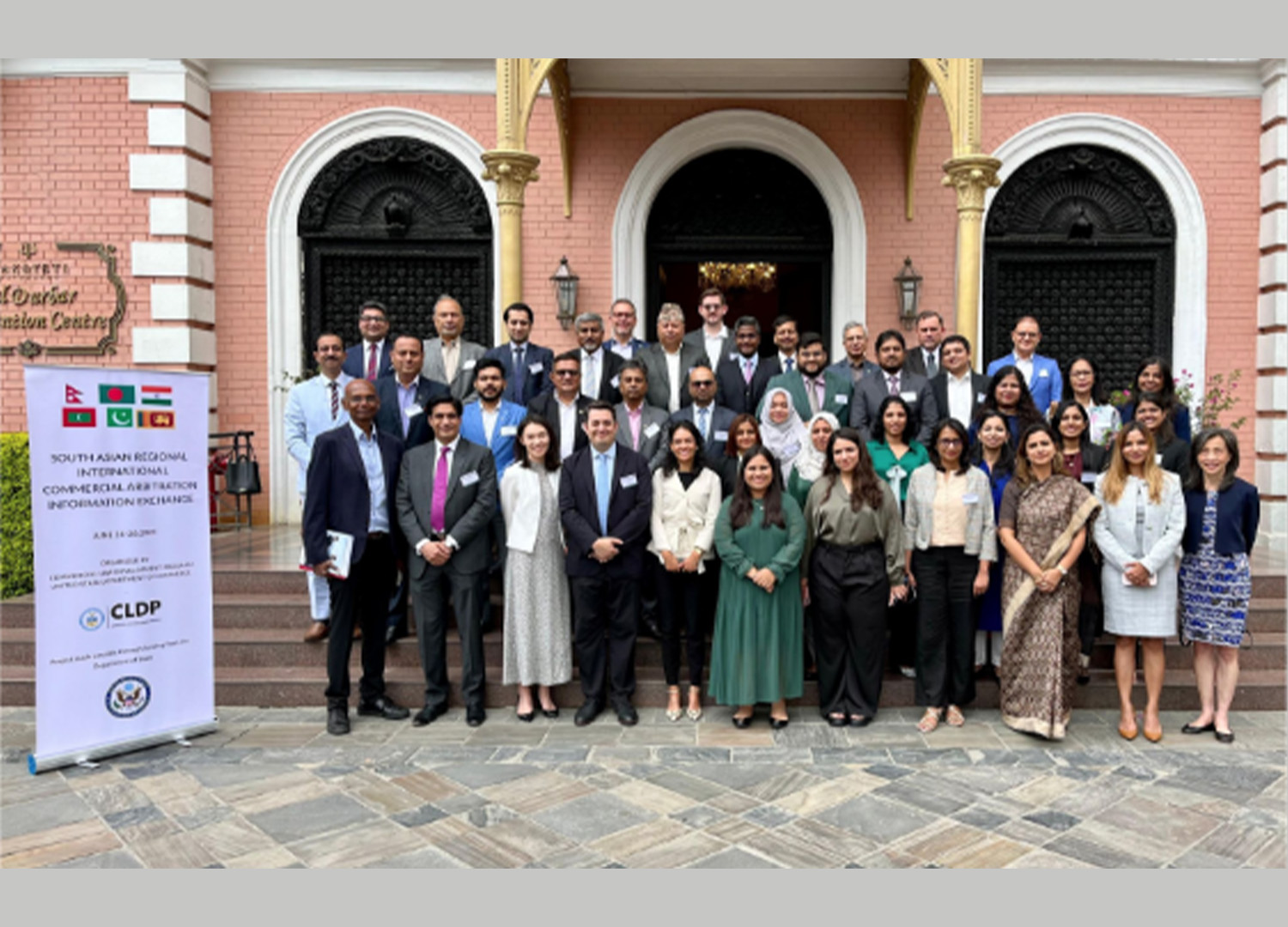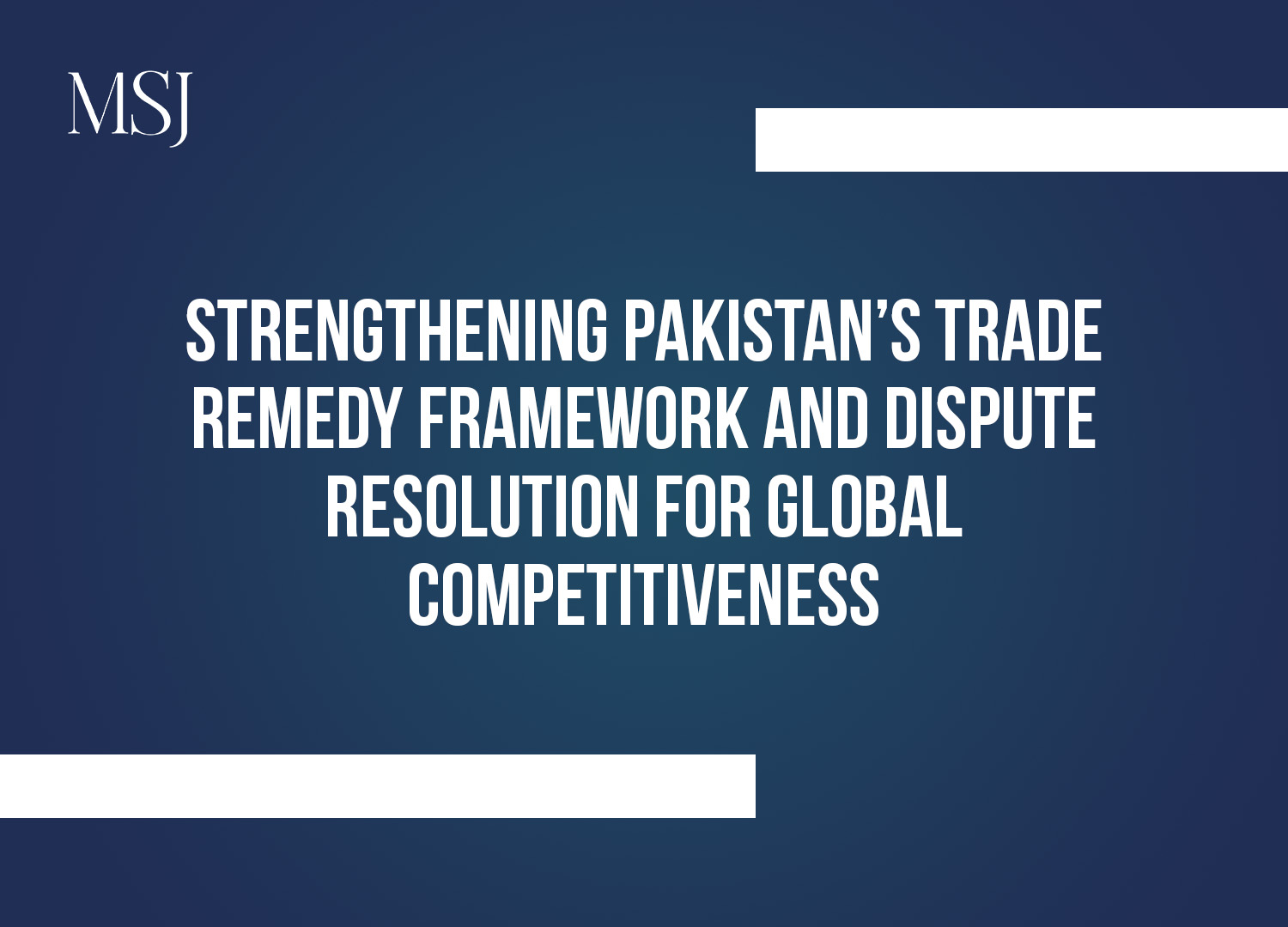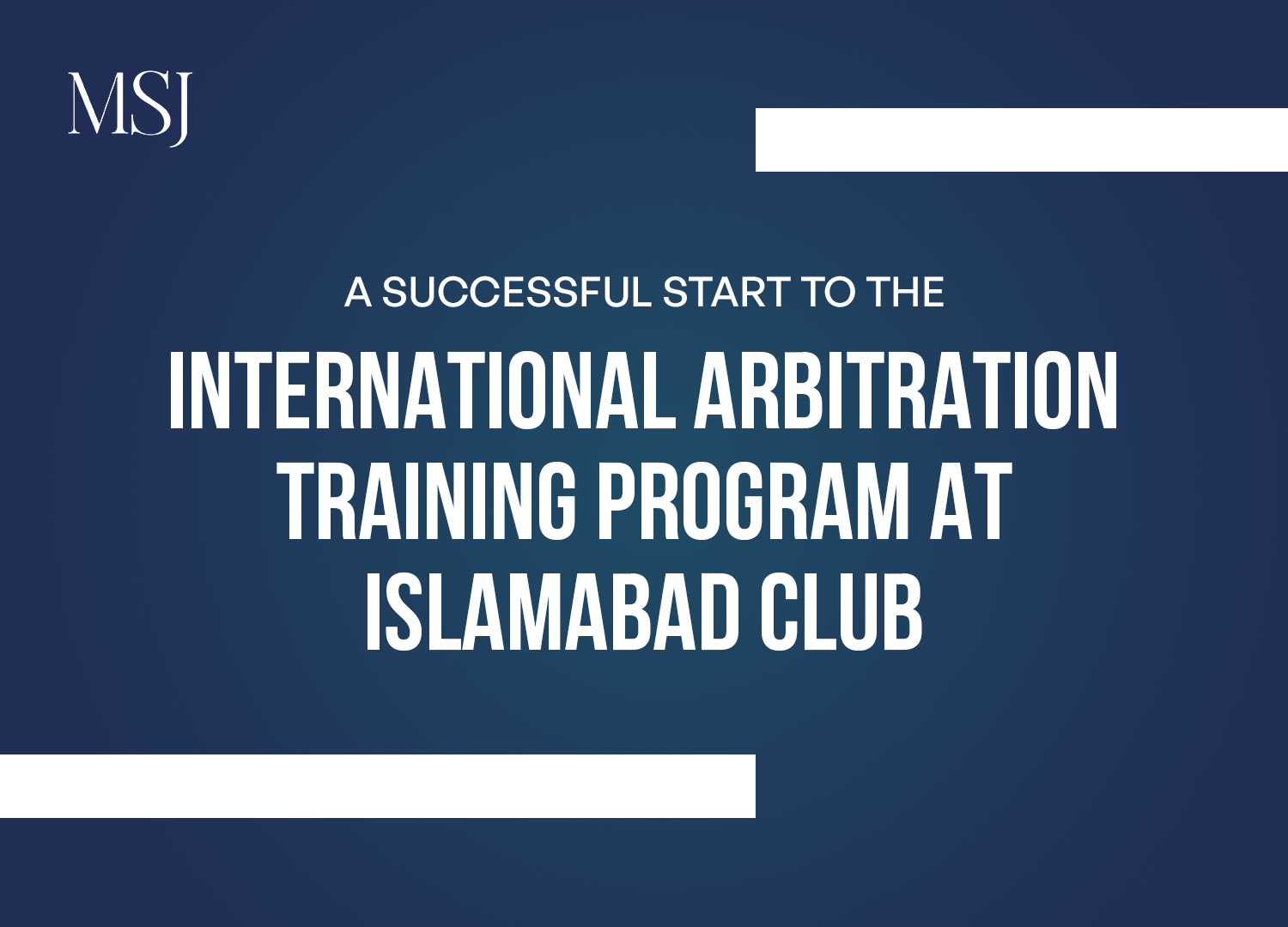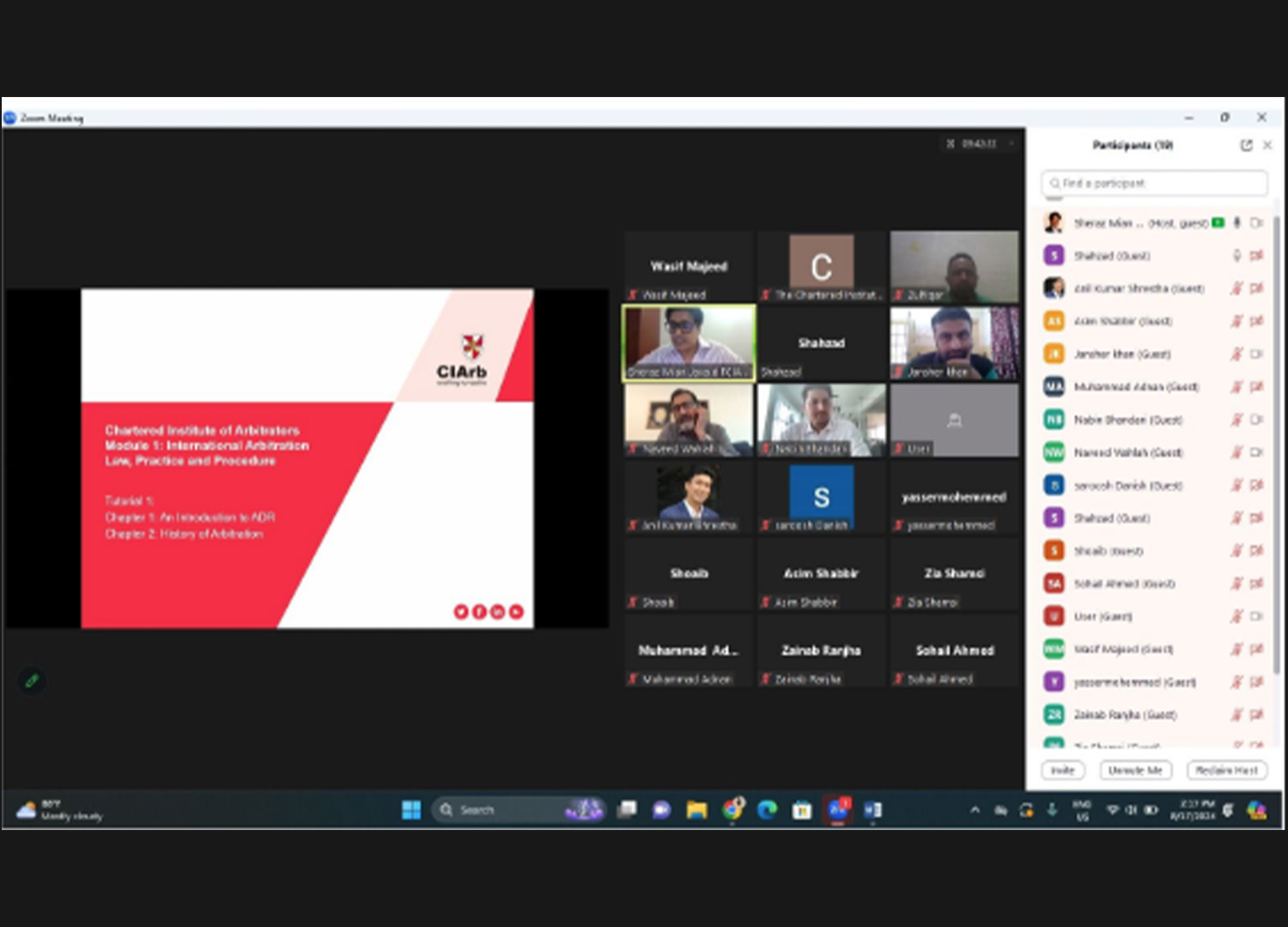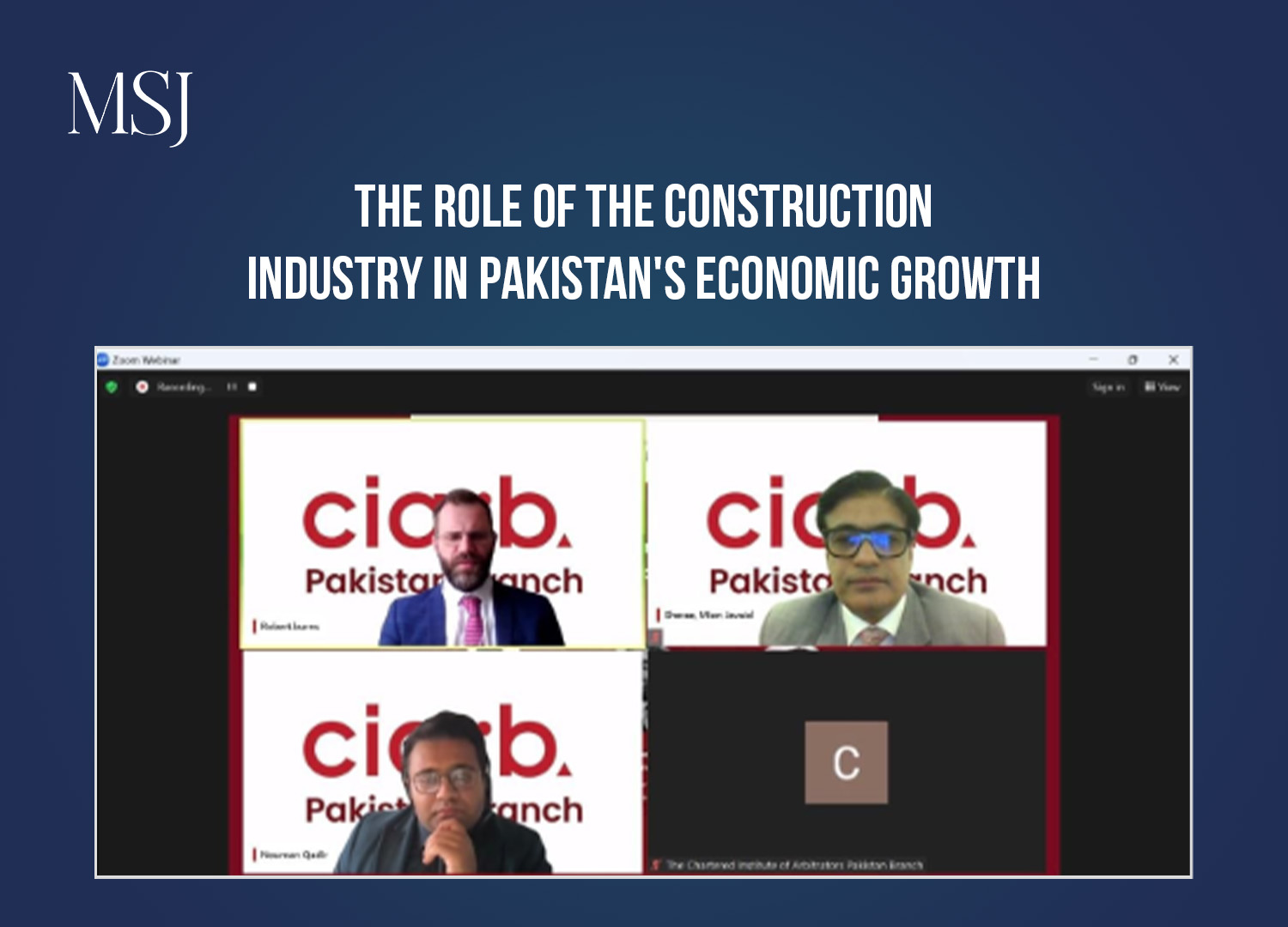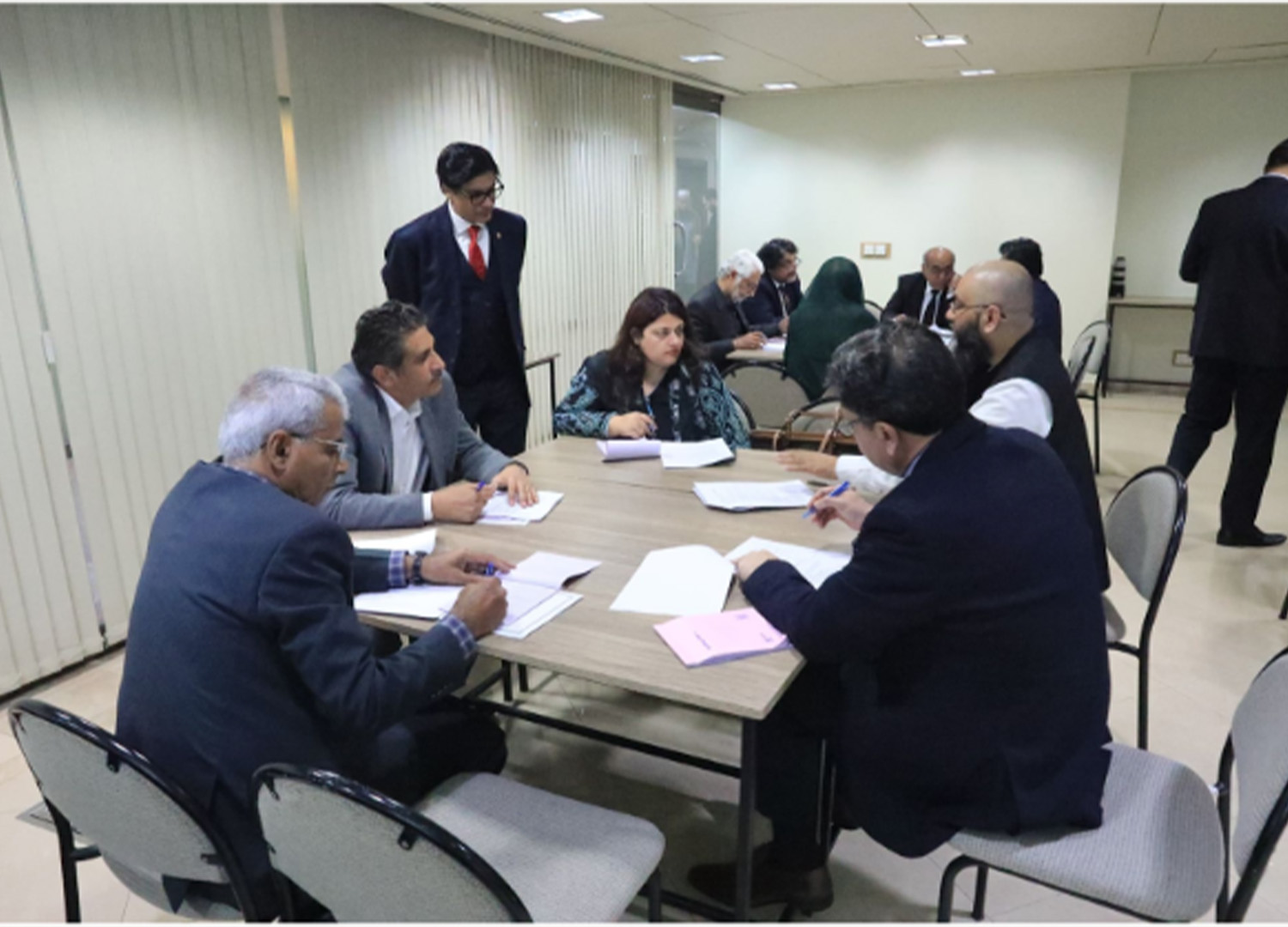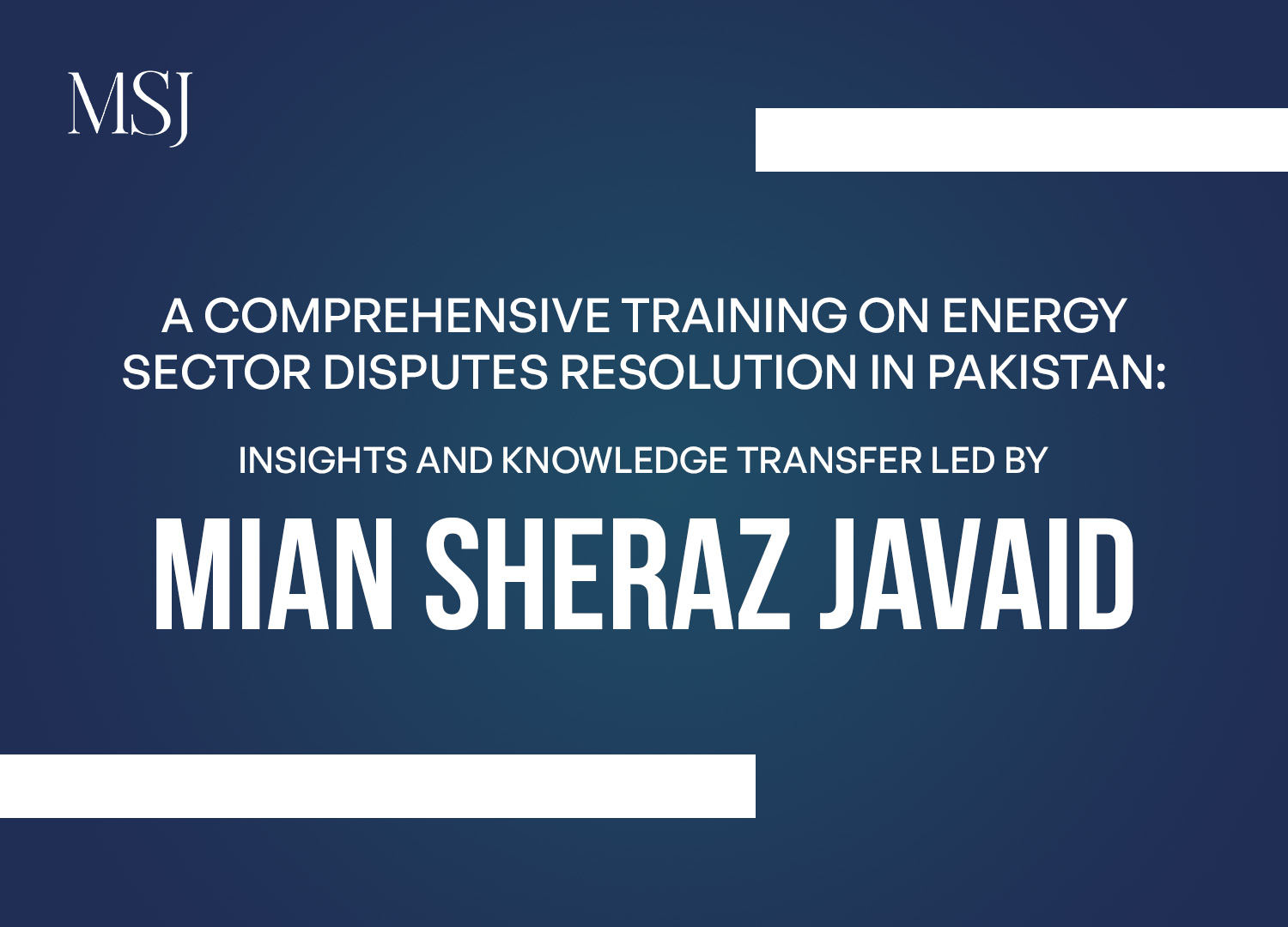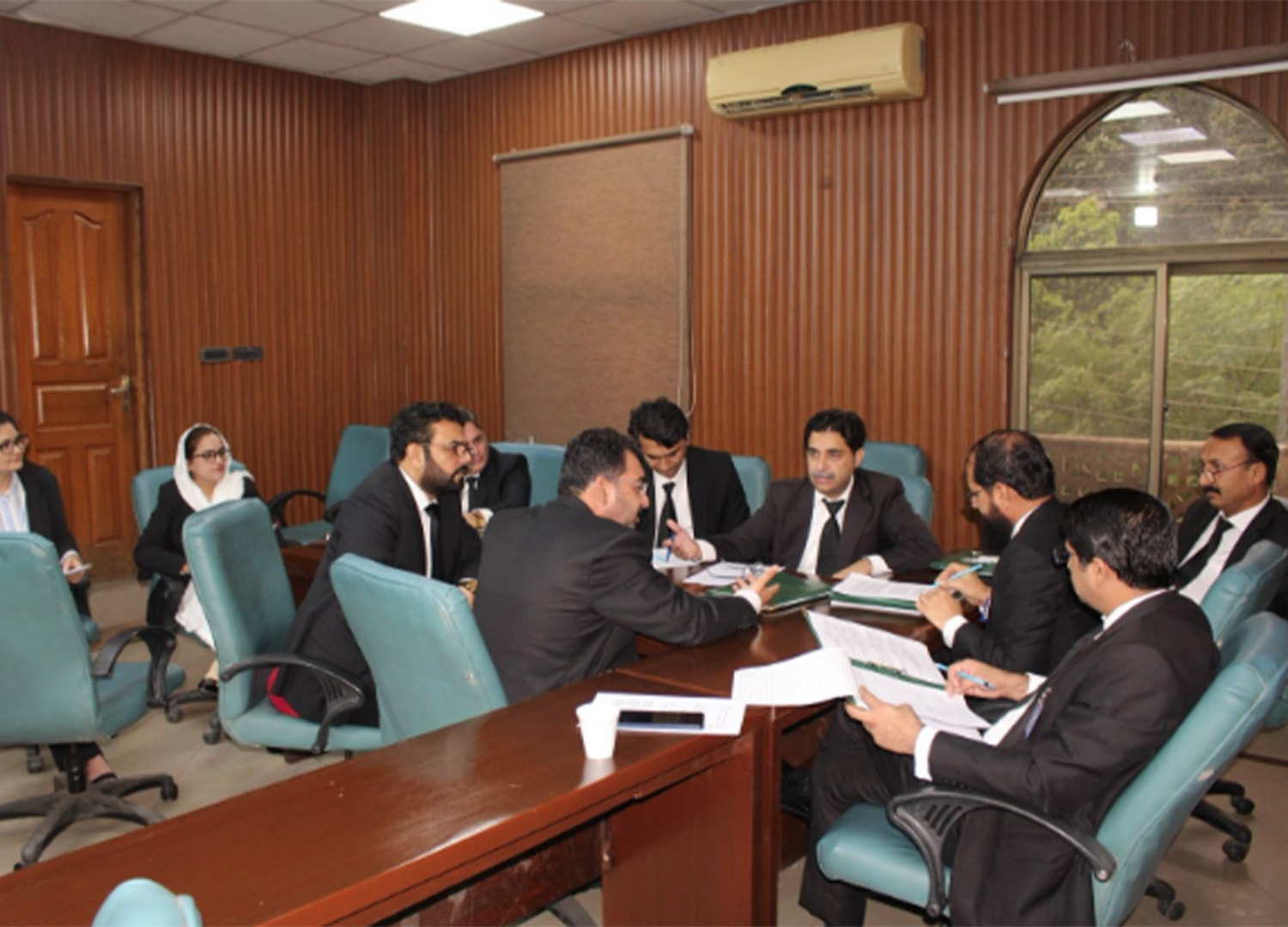Mian Sheraz Javaid Leads Groundbreaking ADR-Arbitration Training Workshop at Sindh Judicial Academy
Mian Sheraz Javaid conducted a seminal training workshop on Arbitration at the Sindh Judicial Academy in Karachi. Organized in collaboration with the Ministry of Law and Justice and the newly established International Mediation and Arbitration Centre (IMAC), the event aimed to broaden the understanding of ADR mechanisms in Pakistan. With his experience and association with the Ciarb Pakistan Branch, Sheraz's leadership in this workshop underscores his commitment to fostering a more efficient and equitable legal landscape in Pakistan.
It was an excellent, all-comprehensive workshop in the presence of judicial officers, lawyers, and professionals from all sectors who will have the excellent opportunity of an exchange and learning platform. The session will further strengthen the culture of ADR, particularly arbitration, within the legal framework of Pakistan, which is a crucial step forward for the nation to get rid of traditional litigation practice and adopt more flexible, cost-effective, and efficient means to solve disputes.
A Collaborative Effort for ADR Growth
This collaboration of Sindh Judicial Academy, Ministry of Law and Justice, and IMAC underlines the fact that ADR is increasingly valued in Pakistan's legal system. The workshop under the management of Sheraz discussed global best practices and arbitration frameworks so participants knew the international standards and protocols related to arbitration.
From time to time during the training, Sheraz took the floor to lead discussions on key topics of arbitration, with a special focus on global best practices. The most important topics covered included the New York Convention, the UNCITRAL Model Law, ICC Arbitration Rules, and ICSID Arbitration Rules. These worldwide respected instruments form the right basis for understanding the broader principles that guide arbitration globally. The training involved the exploration of several questions on jurisdictional issues, the role of arbitral institutions, and the enforcement of international arbitral awards, all considerations that are integral to effective arbitration practice.
Focus on Ad-Hoc vs. Administered Arbitration
One of the more active features of the workshop was going in-depth regarding the subtleties of Ad-Hoc as compared to Administered Arbitration. Through this discussion, participants learnt of the importance arbitral institutions are to the developing practice of international dispute resolution. In this case, a clear description was given concerning how institutional arbitration would be considerably structured, better supported, and richer in available resources as opposed to its counterpart.
Sheraz maintained that the local and international arbitral institutions played a very significant role in the facilitation of arbitration as a practical alternative to litigation in court. A good, robust infrastructure on the part of the arbitral institution facilitates easier, faster dispute resolution and is therefore an increasingly popular alternative for businesses and individuals to avoid lengthy and cumbersome litigation.
Arbitration as a Career: Current Trends and Opportunities
An interesting section of the workshop was an interaction with Sheraz about growing as a career option in arbitration. As ADR continues to rise to new heights worldwide, Sheraz shed light on emerging opportunities in this area. He explored the present trend in international arbitration, pointed out challenges facing practitioners, and explained the important role that diversity and technology are going to play in the future of dispute resolution.
Sheraz noted that with the increased adoption of ADR globally, there is a growing need for qualified professionals, especially in arbitration. This is particularly crucial for Pakistan, as the legal sector is rapidly evolving. With arbitration offering numerous career paths for young professionals and seasoned legal experts alike, Sheraz underlined the need for more legal education and training in this critical area of dispute resolution.
The workshop also covered the role of technology in ADR, an area that is becoming increasingly relevant in today’s digital world. From online dispute resolution (ODR) platforms to the use of artificial intelligence in case management and decision-making, the integration of technology in ADR practices is poised to revolutionise the field. Sheraz underscored that embracing these innovations is essential to ensuring that arbitration remains relevant and accessible in the years to come.
Strengthening Pakistan’s ADR Capacity
The ADR-Arbitration workshop conducted by Mian Sheraz Javaid is a part of the wider effort to improve legal professionals' ability to deal with and solve disputes through an effective alternate dispute resolution process outside of traditional court. Judicial officers, lawyers, and all stakeholders in Pakistan would be enabled to effectively employ the mechanism for implementing ADR processes under this initiative. This represents an important step in Pakistan's legal development.
Sheraz expressed his anticipation about the future of ADR in Pakistan, stating that such collaborative efforts are vital in shifting the paradigm from conventional litigation to more effective, equitable dispute resolution methods. As the legal system in Pakistan continues to grow and modernise, the integration of ADR—especially arbitration—promises to play a central role in ensuring faster, less adversarial, and more cost-effective outcomes for parties involved in disputes.
“Arbitration is not only a practical solution for resolving disputes,” said Sheraz. “It’s also an essential tool for fostering international trade, investment, and economic growth. For Pakistan to truly prosper in today’s globalised world, it must embrace arbitration and other forms of ADR as the future of dispute resolution.”
Sheraz’s dedication to promoting ADR reflects his broader vision of legal reform in Pakistan. By actively participating in initiatives that improve understanding of arbitration and ADR, he continues to make significant strides toward enhancing the country’s legal and business environments.
Looking Forward to a Stronger ADR Future
Looking ahead, Mian Sheraz Javaid is committed to continuing his efforts to promote arbitration and ADR as essential tools for legal, social, and economic progress in Pakistan. The recent workshop at the Sindh Judicial Academy serves as just one example of his broader mission to advance these critical fields within the country’s legal system.
This impact, while still in the making, is expected to have a nationwide presence as Pakistan moves towards the integration of ADR within its legal structure. Ultimately, this will form the basis for a more efficient, equitable, and progressive legal landscape. With international legal communities turning increasingly to ADR mechanisms such as arbitration, there is a once-in-a-lifetime opportunity for Pakistan to capture these innovations in the best interests of its people and economy.
In conclusion, Mian Sheraz Javaid’s leadership and advocacy for ADR have placed him at the forefront of a crucial movement toward modernising Pakistan’s dispute resolution practices. With his continued efforts and the growing momentum behind ADR, the future of arbitration in Pakistan looks incredibly promising.
Subscribe to get latest Updates & Activities.
Follow us on Medium, Twitter, Facebook, YouTube, and Dribbble.



